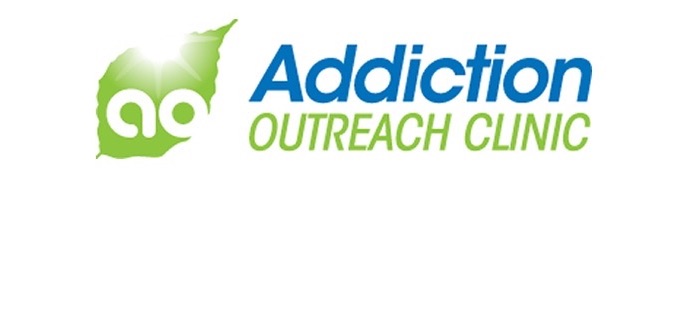Relapse Prevention Plan for Opioid Addiction Recovery | 6 Strategies for a Good Relapse Prevention

Relapse Prevention Plan for Opioid Addiction Recovery
The situations and people who you surround yourself with on your road to recovery may be one of the most important aspects of a successful recovery plan and preventing relapse. Removing people from your life can be hard, but it can also be the most important factor in a relapse prevention plan on your path to opioid addiction recovery. A peer support group can provide an ongoing support system with lasting benefits throughout recovery. In the journal Addiction, many studies showed that individuals who received help for addiction and participated in support groups were less likely to relapse.
Relapse Prevention Techniques
Relapse after or during opioid addiction treatment does not indicate that you have failed. What relapse does mean if it occurs is that you need to refocus yourself and take the proper steps to readjust your recovery and develop more relapse prevention skills. If you relapse, reducing the severity and duration of the relapse episode will make the biggest difference, so never give up, keep fighting and get back on track as quick as possible. Your drug addiction specialist may adjust your recovery plan or treatment model based on a relapse. Recognizing your relapse triggers such as stress, and learning how to manage and recognize other triggers which can help regulate moods and help with recovery and developing better relapse prevention strategies.
The following are useful relapse prevention tips:
- Get a proper amount of sleep, 7-9 hours.
- Eat a healthy balanced diet, high in protein and complex carbohydrates and low in refined sugar.
- Maintain a regular exercising regiment.
- Manage stress with holistic natural methods such as yoga and meditation
- Avoid caffeine
- Attend all scheduled therapy sessions and counseling sessions
- Take all prescribed medications as directed
- Take supplements as directed
- Join a support group and attend meetings regularly.
- Undergo a complete medical and psychological assessment to ensure any co-occurring disorders are being treated and managed as well.
- Avoid situations, people, and locations that have been tied to previous drug abuse or could cause potential relapse triggers.
- Surround yourself with positive and supportive people to build your support network
- Start a creative hobby such as art, photography, dancing, music, or anything else creative.
- Be self-sufficient and try to not rely on others for much.
- Keep yourself and your mind occupied with work, hobbies, friends, and family.
- Ask for help when it is needed.
6 Strategies for a Good Relapse Prevention Plan
- Practice Self-care
The most important thing you can do for yourself to prevent relapse is to take great care of yourself. If you think about why you use, usually it ends up being an escape, a way to reward yourself, or a way to numb the pain – practicing self-care helps to remove yourself from having these feelings and being left in these situations. Relapse happens when you don’t take care of yourself, focus on yourself.
- Think through the situation
Think the situation through. When thinking about using, the fantasy is that you’ll be able to control the use – just one more drink, one more cigarette, but think it through one will always lead to more and you will regret it the next day. Not only may you regret it but you might find yourself using again with no control or ability to stop. If you logically think all the way through the fantasy, you’ll realize it won’t be worth it.
- Talk With Someone
Talk with someone. When you’re having an urge, call a friend, a support buddy, someone else in recovery and tell them what you’re thinking. If you share what you are feeling the urges may go away once you start actually talking about it. It will also help you not feel so alone.
- Distract Yourself
Distract yourself. If you’re thinking about using you won’t be able to stop unless you become distracted thinking about something else. Go for a walk, go hand out with a friend, cook a nice meal, build something, paint, play a video game. If you just sit and think it will be hard to stop yourself.
- Take it Day by Day
Recovery is a step by step process and take it one day at a time. Don’t think about forever, think about today. Sometimes when you think about abstinence forever, it is overwhelming and may feel impossible. Think about today, what you’re going to do today, and the success of staying sober today. When you’re feeling motivated tell yourself you won’t use for a week or a month, sometimes you won’t feel so motivate so tell yourself you won’t use for the next 30 minutes and go from there.
6. Relax
Relax. Relaxation is an important part of self-care and recovery. Being tense causes repeating mistakes you’ve made before, being relaxed leaves you more optimistic and open to change, so spend time relaxing and relieving the stress.
Addiction Outreach Clinic is Here to Help
The drug addiction specialists at Addiction Outreach Clinic (AOC) have years of training in identifying and treating opioid addiction. Our opioid addiction treatment program starts with a medical assessment and includes Suboxone® medication-assisted treatment to prevent cravings and withdrawal symptoms. We combine medication with a once-a-month behavioral counseling session to support our patients’ recovery efforts and help them get their lives back.
Whether treatment is for you, a family member or a friend, we are happy to speak with you about our outpatient drug treatment program, and how AOC can help patients with their opioid addiction recovery. Since 2007, AOC has helped thousands of patients on their path to recovery.
Please read more about AOC, call us at 330-259-4849, or email to schedule an appointment – it’s fast, easy and confidential.




Leave a Reply
Want to join the discussion?Feel free to contribute!